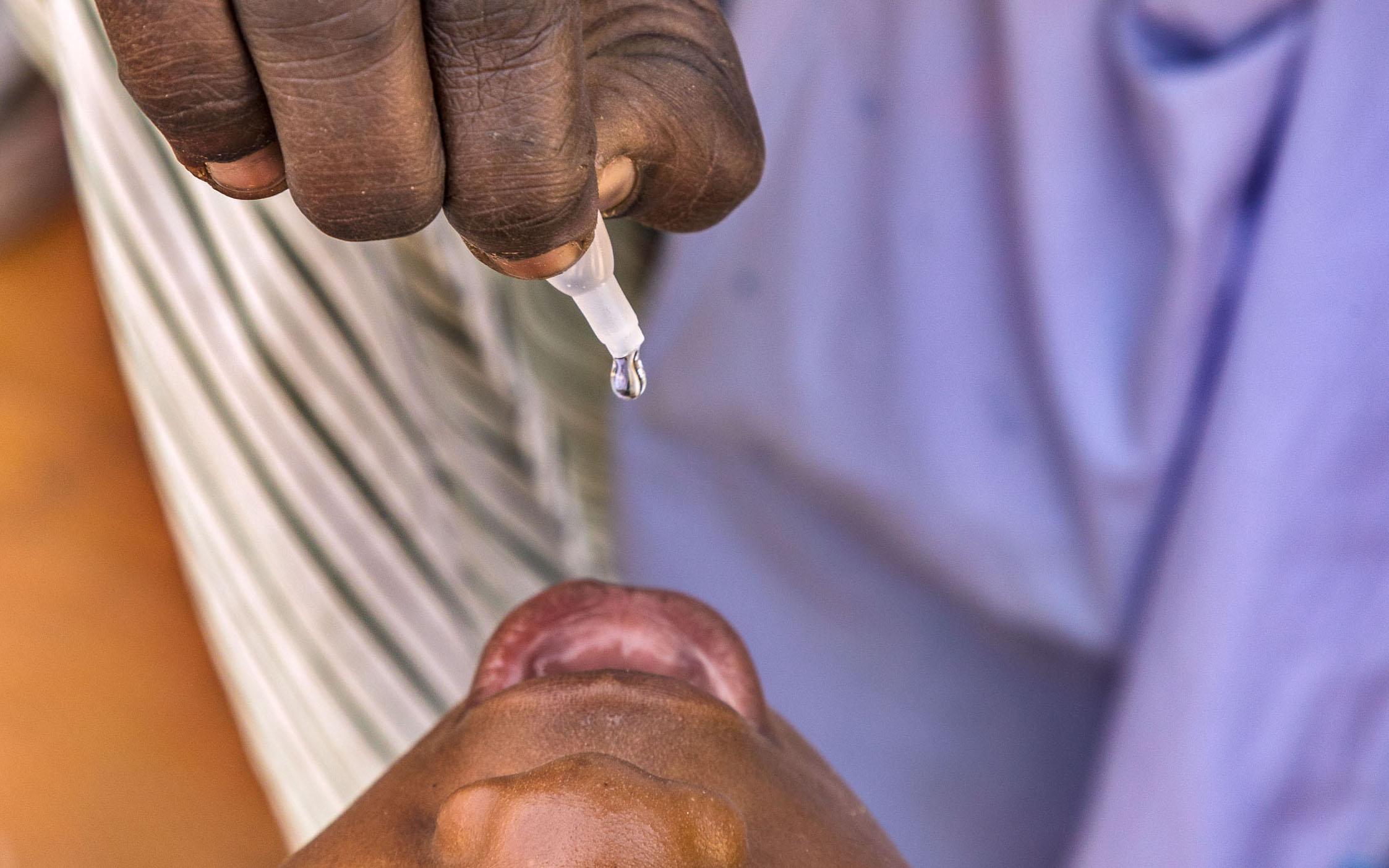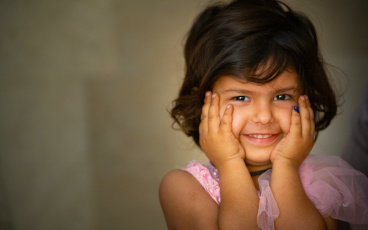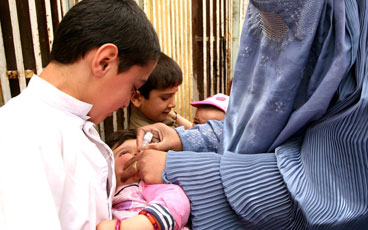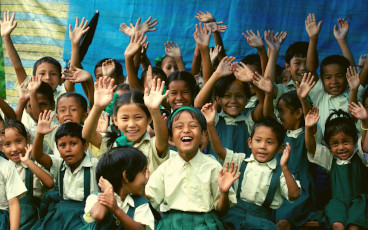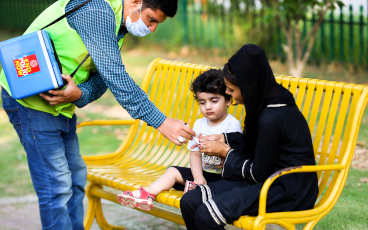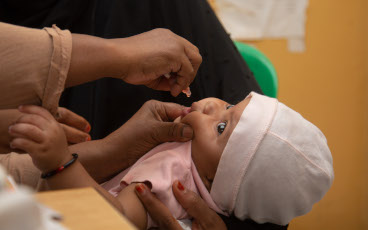Health Workers at the Heart of Polio Outbreak Response in Iraq
Despite over a year without polio, Iraq has hard work ahead to keep children safe from the virus
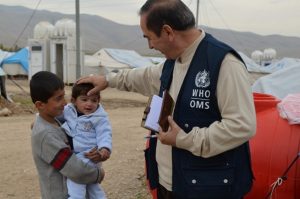
In April 2015 the Global Polio Eradication Initiative marked a year since the last reported case of polio in Iraq. Despite the extremely challenging environment, polio campaigns have succeeded in reaching children with vaccines even in areas that were inaccessible for other programmes. This was made possible by the innovative collaborations of the polio programme between ministries, local partners, and the health workers on the frontline who take risks every day.
From 24 to 28 May, Iraq saw 5.7 million children targeted with oral polio vaccine, the 14th campaign since an outbreak was first reported in neighbouring Syria. To reach this many children, 6652 health workers in the field assist in the administration of oral polio vaccine (OPV). Health workers have been at the heart of the polio outbreak response, working tirelessly in very challenging conditions.
Overview of the Emergency Response to the Iraq Outbreak
WHO Country Representative to Iraq, Dr Syed Jaffar Hussain, said: “Despite the civil unrest, polio campaigns have continued to reach up to 90% of children through collaborative efforts with multiple line-ministries and local partners.” He paid tribute to polio vaccination team members and parents and appealed to the international community and partners for their continued financial and technical support over the next 12 months for an additional 4 nationwide vaccination campaigns. “Community efforts were well acknowledged by the Independent Monitoring Board for the Global Polio Eradication Initiative during their recent meeting. However, significant risks continue to exist and thus there is no room for complacency,” Dr Hussain added.
Iraq still has work to do to keep children protected despite the difficult environment. The programme needs to enhance surveillance quality to reduce the risk of undetected wild poliovirus transmission, particularly among high-risk mobile and vulnerable populations; intensify efforts to ensure vaccination of mobile and cross-border populations, internally displaced persons, refugees and other vulnerable groups; and enhance regional cooperation and cross-border coordination to ensure prompt detection of wild poliovirus and vaccination of population groups at high risk.


